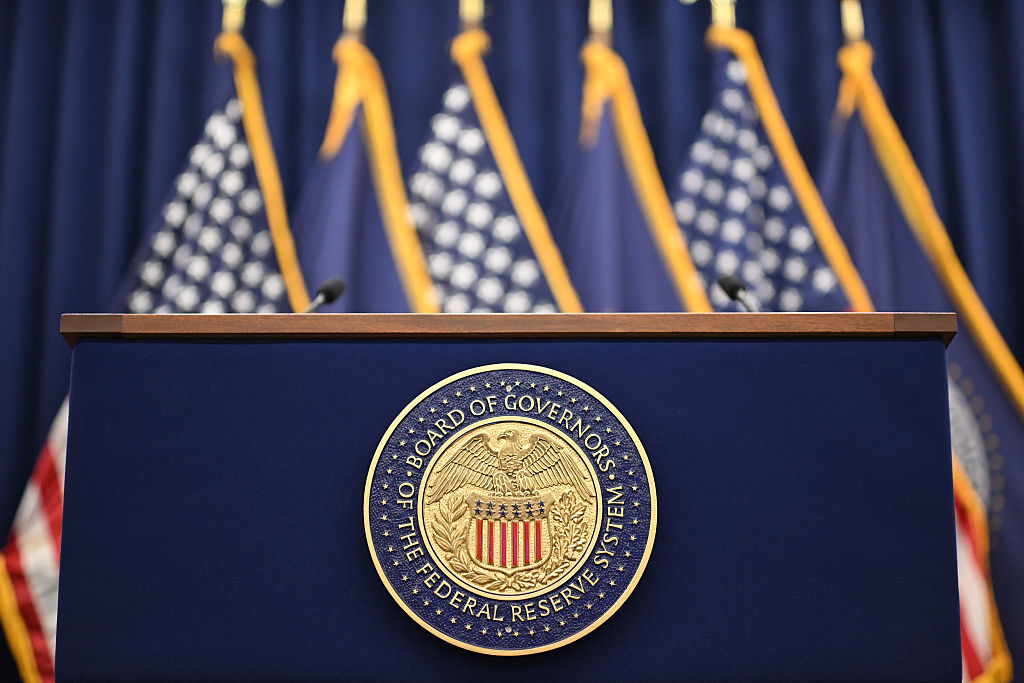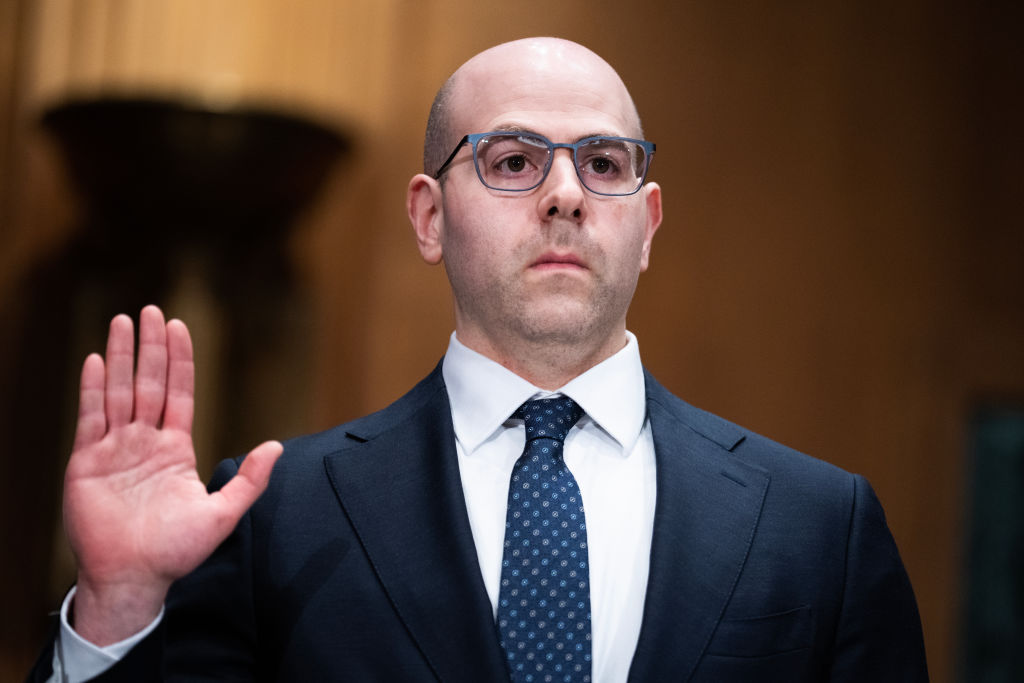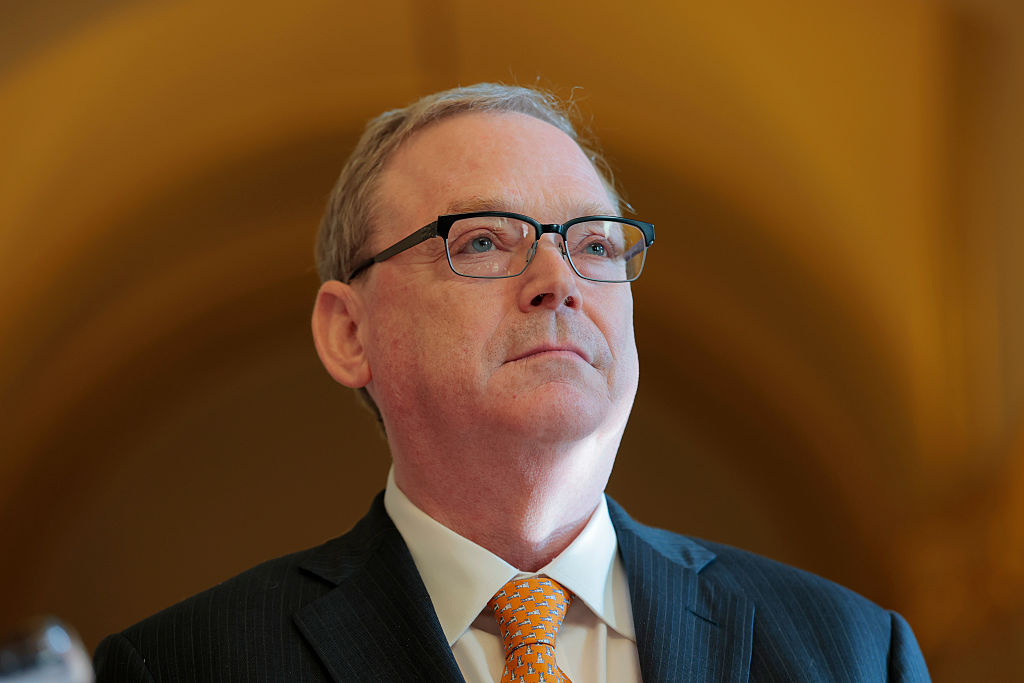Who Will Replace Jerome Powell as Fed Chair?
With Jerome Powell's term set to expire in May 2026, President Donald Trump is actively preparing to name a new Fed Chair.


Profit and prosper with the best of Kiplinger's advice on investing, taxes, retirement, personal finance and much more. Delivered daily. Enter your email in the box and click Sign Me Up.
You are now subscribed
Your newsletter sign-up was successful
Want to add more newsletters?

Delivered daily
Kiplinger Today
Profit and prosper with the best of Kiplinger's advice on investing, taxes, retirement, personal finance and much more delivered daily. Smart money moves start here.

Sent five days a week
Kiplinger A Step Ahead
Get practical help to make better financial decisions in your everyday life, from spending to savings on top deals.

Delivered daily
Kiplinger Closing Bell
Get today's biggest financial and investing headlines delivered to your inbox every day the U.S. stock market is open.

Sent twice a week
Kiplinger Adviser Intel
Financial pros across the country share best practices and fresh tactics to preserve and grow your wealth.

Delivered weekly
Kiplinger Tax Tips
Trim your federal and state tax bills with practical tax-planning and tax-cutting strategies.

Sent twice a week
Kiplinger Retirement Tips
Your twice-a-week guide to planning and enjoying a financially secure and richly rewarding retirement

Sent bimonthly.
Kiplinger Adviser Angle
Insights for advisers, wealth managers and other financial professionals.

Sent twice a week
Kiplinger Investing Weekly
Your twice-a-week roundup of promising stocks, funds, companies and industries you should consider, ones you should avoid, and why.

Sent weekly for six weeks
Kiplinger Invest for Retirement
Your step-by-step six-part series on how to invest for retirement, from devising a successful strategy to exactly which investments to choose.
President Donald Trump has moved from aggressively pressuring Federal Reserve Chairman Jerome Powell for a rate cut to actively searching for his replacement.
Indeed, President Trump has named Treasury Secretary Scott Bessent, once a candidate himself, to lead the search for a new Fed chair.
In early August, Trump got his first chance during his second administration to re-shape the central bank when Fed Governor Adriana Kugler announced her resignation.
From just $107.88 $24.99 for Kiplinger Personal Finance
Become a smarter, better informed investor. Subscribe from just $107.88 $24.99, plus get up to 4 Special Issues

Sign up for Kiplinger’s Free Newsletters
Profit and prosper with the best of expert advice on investing, taxes, retirement, personal finance and more - straight to your e-mail.
Profit and prosper with the best of expert advice - straight to your e-mail.
The White House moved quickly to name Stephen Miran to succeed Kugler on the Fed board. Miran, the chair of the White House Council of Economic Advisers, is now a favorite to succeed Powell as Fed chair.
As the president said during a July 24 visit to Fed headquarters, "I just want to see one thing happen, very simple: interest rates come down." The central bank has held rates steady since last September to evaluate incoming economic data for signs of inflation.
As recently as June 25, Trump said he knew "within three or four people who all I'm going to pick." The list has evolved since then and now no longer includes Bessent. It has expanded to 13 names, with Miran's at the top.
One way or another, Jerome Powell is leaving the Federal Reserve, and relatively soon. Indeed, his term is up in May of next year.
Questions about whether Trump has the power to fire Powell are less relevant now than who will be the next Fed chair.
But longer-term issues such as the extent to which the executive can and should exercise authority over the central bank and monetary policy will linger.
Federal Reserve math
To begin with, the Federal Reserve is not a single bank, nor is it led by just one person.
Rather, the Federal Reserve Act of 1913, which established the Fed as the U.S. central banking system, created 12 regional reserve banks and a Board of Governors of the Federal Reserve System that consists of seven individuals.
This board is nominated by the president and confirmed by the Senate. One of these board members is then nominated for the chair position and the Senate votes on that appointment, too.
That may sound like semantics, but the process shows it's not quite as simple as President Trump replacing one person with another. At least, not according to legal precedent and the Federal Reserve Act.
Interestingly, Powell was appointed to lead the Fed by Donald Trump in 2018. He was then confirmed by the Senate overwhelmingly, by a vote of 84-13.
His first four-year term in the role expired, but he was again confirmed in 2022 for another four-year stint by an 80-19 vote.
That puts Powell's current term as chair at expiration in May 2026 – although his broader appointment to the Fed's board technically won't expire until January 2028, regardless of chairmanship status.
A timeline for Trump to announce Powell's replacement is firming, and it appears, as The Wall Street Journal reported in June, it could happen by September or October.
Who could replace Powell as Fed chair?
One way or another, either because of his 2026 term expiration or a potential firing, Powell's days as Fed chair are numbered.
Here are a few potential replacements who have been mentioned recently:
Candidate | Current role |
Michelle Bowman | Federal Reserve Vice Chair for Supervision |
James Bullard | Dean, Purdue University School of Business |
Kevin Hassett | Director, White House National Economic Council |
Philip Jefferson | Federal Reserve Vice Chair |
Larry Lindsey | CEO, The Lindsey Group |
Lorie Logan | President, Federal Reserve Bank of Dallas |
Stephen Miran | Chair, Council of Economic Advisers |
Rick Rieder | CIO for Fixed Income, BlackRock |
Marc Sumerlin | Member, Financial Research Advisory Committee |
Chris Waller | Governor, Federal Reserve Board |
Kevin Warsh | Member, Panel of Economic Advisers |
David Zervos | Chief Market Strategist, Jefferies |
And here are the most prominent names in the mix to be the next Fed chair:
Stephen Miran, White House Council of Economic Advisers chair

On August X, President Trump nominated Stephen Miran to take Adriana Kugler's place as one of seven members of the Fed's Board of Governors.
Miran was confirmed by the Senate in March to chair the Council of Economic Advisers, an executive agency under the direct authority of the president.
Before joining the second Trump administration, Miran was a senior strategist at Hudson Bay Capital Management and a senior fellow at the Manhattan Institute for Policy Research.
During the first Trump administration, he served as a senior for economic policy at the Treasury Department, providing assistance with fiscal support during the pandemic recession including the Paycheck Protection Program and other support programs.
"There just still continues to be no evidence whatsoever of any tariff-induced inflation," Miran said during an August 12 appearance on CNBC. "Lots of folks who were expecting ... doom and gloom, it just hasn’t panned out, and it continues to not pan out for them."
Miran earned a Ph.D. in economics from Harvard University and a B.A. from Boston University, where he studied economics, philosophy, and mathematics.
Kevin Hassett, White House National Economic Council director

Kevin Hassett has the one-two punch of conservative political credentials and academic pedigree.
Hassett worked at the American Enterprise Institute, a conservative think tank, and advised other leading Republicans such as John McCain, George W. Bush and Mitt Romney.
Most importantly, he also served as chairman of the Council of Economic Advisers in the first Trump administration and returned to the White House to serve as its current director of its National Economic Council.
There's one caveat, though: Hassett argued in his 2021 book that previous efforts to fire Powell during Trump's first term would have harmed the Fed's reputation as an objective institution.
More recently, he has tried to walk back from those remarks, but if Trump does jump the gun before Powell's term expires next May, that could make any Senate confirmation hearings of Hassett interesting to watch.
Kevin Warsh, former Federal Reserve Governor

Kevin Warsh served as former Fed Chair Ben Bernanke's right-hand man during the 2008 financial crisis. That gives him tremendous street cred on Wall Street, and would help provide stability if markets get rocky due to Trump's very public pressures on the central bank.
But what really has Warsh on the short list is his great relationship with President Trump, who had reportedly considered the economist for the position of Treasury secretary before nominating Scott Bessent.
Though a "hawk" that generally favors higher interest rates rather than the risk of inflation, his record as an ally of the Trump administration is critical and raises his chances of rejoining the Fed and taking its reins as chair.
Related content
- How to Invest for a Fall Interest Rate Cut by the Fed
- How Big Will the Fed Rate Cut Be This Fall?
- What CEOs Say About President Trump and Fed Chair Powell
Profit and prosper with the best of Kiplinger's advice on investing, taxes, retirement, personal finance and much more. Delivered daily. Enter your email in the box and click Sign Me Up.

Jeff Reeves writes about equity markets and exchange-traded funds for Kiplinger. A veteran journalist with extensive capital markets experience, Jeff has written about Wall Street and investing since 2008. His work has appeared in numerous respected finance outlets, including CNBC, the Fox Business Network, the Wall Street Journal digital network, USA Today and CNN Money.
-
 Quiz: Do You Know How to Avoid the "Medigap Trap?"
Quiz: Do You Know How to Avoid the "Medigap Trap?"Quiz Test your basic knowledge of the "Medigap Trap" in our quick quiz.
-
 5 Top Tax-Efficient Mutual Funds for Smarter Investing
5 Top Tax-Efficient Mutual Funds for Smarter InvestingMutual funds are many things, but "tax-friendly" usually isn't one of them. These are the exceptions.
-
 AI Sparks Existential Crisis for Software Stocks
AI Sparks Existential Crisis for Software StocksThe Kiplinger Letter Fears that SaaS subscription software could be rendered obsolete by artificial intelligence make investors jittery.
-
 5 Top Tax-Efficient Mutual Funds for Smarter Investing
5 Top Tax-Efficient Mutual Funds for Smarter InvestingMutual funds are many things, but "tax-friendly" usually isn't one of them. These are the exceptions.
-
 Why Invest In Mutual Funds When ETFs Exist?
Why Invest In Mutual Funds When ETFs Exist?Exchange-traded funds are cheaper, more tax-efficient and more flexible. But don't put mutual funds out to pasture quite yet.
-
 Social Security Break-Even Math Is Helpful, But Don't Let It Dictate When You'll File
Social Security Break-Even Math Is Helpful, But Don't Let It Dictate When You'll FileYour Social Security break-even age tells you how long you'd need to live for delaying to pay off, but shouldn't be the sole basis for deciding when to claim.
-
 I'm an Opportunity Zone Pro: This Is How to Deliver Roth-Like Tax-Free Growth (Without Contribution Limits)
I'm an Opportunity Zone Pro: This Is How to Deliver Roth-Like Tax-Free Growth (Without Contribution Limits)Investors who combine Roth IRAs, the gold standard of tax-free savings, with qualified opportunity funds could enjoy decades of tax-free growth.
-
 One of the Most Powerful Wealth-Building Moves a Woman Can Make: A Midcareer Pivot
One of the Most Powerful Wealth-Building Moves a Woman Can Make: A Midcareer PivotIf it feels like you can't sustain what you're doing for the next 20 years, it's time for an honest look at what's draining you and what energizes you.
-
 Stocks Make More Big Up and Down Moves: Stock Market Today
Stocks Make More Big Up and Down Moves: Stock Market TodayThe impact of revolutionary technology has replaced world-changing trade policy as the major variable for markets, with mixed results for sectors and stocks.
-
 I'm a Wealth Adviser Obsessed With Mahjong: Here Are 8 Ways It Can Teach Us How to Manage Our Money
I'm a Wealth Adviser Obsessed With Mahjong: Here Are 8 Ways It Can Teach Us How to Manage Our MoneyThis increasingly popular Chinese game can teach us not only how to help manage our money but also how important it is to connect with other people.
-
 Looking for a Financial Book That Won't Put Your Young Adult to Sleep? This One Makes 'Cents'
Looking for a Financial Book That Won't Put Your Young Adult to Sleep? This One Makes 'Cents'"Wealth Your Way" by Cosmo DeStefano offers a highly accessible guide for young adults and their parents on building wealth through simple, consistent habits.